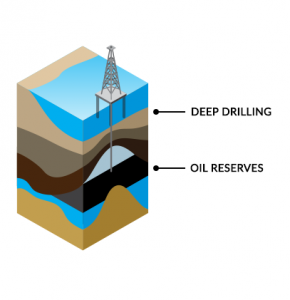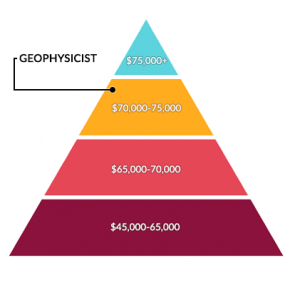All Categories
Featured
Table of Contents
Airborne Geophysical Survey in Sinagra Oz 2021
This work is progressively contracted out, so consultancies supply another source of work. Consultancy companies vary in size, from really little companies to big multinationals. Some consultancies are quite specialised in utilizing particular geophysical strategies or working in specific areas, while others provide a more diverse range of services to their customers.
The extraction of gas from land fill websites is another area of work and this might grow in the future. Exploration companies may carry out work for building and construction firms, water companies, mining companies and ecological agencies, so geophysicists might be utilized in any of these settings. Other employers consist of: geological surveysgovernment bodies and agenciesuniversities and research institutes.


Jobs might be noted in the oil and gas sector press. Recruitment is impacted by oil rate fluctuations and the level of competitors for positions differs depending upon this. Professions Days, which cover the full series of geoscience professions and are typically participated in by a variety of key industry employers, are run by The Geological Society.
What Are Geophysical Surveys & Why Do They Matter in Ardross Aus 2021
A few of the big oil and gas companies provide a full two-year structured training programme throughout the breadth of geophysics, consisting of the chance to experience work in various teams before specialising in one location. Your training may consist of deal with: existing wellsmagnetic and gravitational potential field information analysisresearchrock analysis. However, it's more usual for your preliminary training to be provided on the job.

There may be a probationary duration during which you work alongside a skilled associate. Competency-based appraisals happen frequently in a lot of firms. In smaller sized companies, and for scholastic posts, there is not likely to be any official training - you'll be anticipated to start work straightaway and select up skills as you go along.
If you work for a smaller sized company, you might discover that you require to take duty for setting up and moneying your own development and training. If you have a geology degree, subscription of The Geological Society can be beneficial for networking and for maintaining to date with the market.
Geophysicists in Eden Hill Australia 2020
You may also find it helpful to join the PESGB (The Petroleum Expedition Society of Great Britain, which has a geophysics special interest group. After a probationary duration, and as soon as you've acquired some experience, you could advance to senior geophysicist, then group leader and after that into a senior role in management.
The ease of motion between roles depends upon the company structure. Study at Masters or Ph, D level in a subject related to geophysics or geosciences might assist with your career advancement and progression. The work market within the oil and gas market is extremely based on rate and this may affect your opportunities for career development.
For skilled geophysicists, freelance consultancy provides an excellent path for career development. As a geophysicist, you're most likely to have a number of tasks throughout your working life.
Recent Advances In Optimized Geophysical Survey Design in Scarborough Oz 2023
From geophysics, it's possible to focus on seismology (finishing additional training to become a seismic interpreter) or to move into related areas such as engineering geology or risk prediction.
Deciding what to study in college is a tough choice. Even if you understand that your field of interest lies in science, what program of research study is ideal for you?
But the primary step to accomplishing your goal of becoming a geophysicist is earning a degree. Even for entry-level positions in the field of geoscience, you'll require a bachelor's degree (a geophysicist college degree) from a recognized college or university. Some research study positions require prospects to hold master's degrees or even Ph.
Geophysical Surveys in Beechina Western Australia 2022
Postgraduate degree are especially crucial if you prepare to teach at a four-year institution. Geophysicists apply physics ideas and strategies to study the gravitational, magnetic, and electrical fields of the earth. This furthers researchers' understanding of both the planet's interior core and its surface area. Geophysicists should have the ability to: examine rocks, pictures, and other pieces of data perform research study both in the field and in laboratories produce maps and charts of their findings write reports To accomplish all this, students need a specialized education for geophysicist careers.
As specified above, you'll require a bachelor's degree in geoscience or an associated discipline, such as a physical science or a life sciences, to land an entry-level task. Students can likewise prepare by majoring in subjects like: Biology Chemistry Computer system science Engineering Mathematics Physics The above geophysicist majors offer a more generalized approach to a single clinical discipline, but the majority of programs require students to take one or more geology course.
Latest Posts
Geophysical Survey in Jandakot Australia 2020
Geophysics Definition & Meaning in Roleystone Oz 2021
Geophysical Survey - Explore The Seafloor in Kinross WA 2021